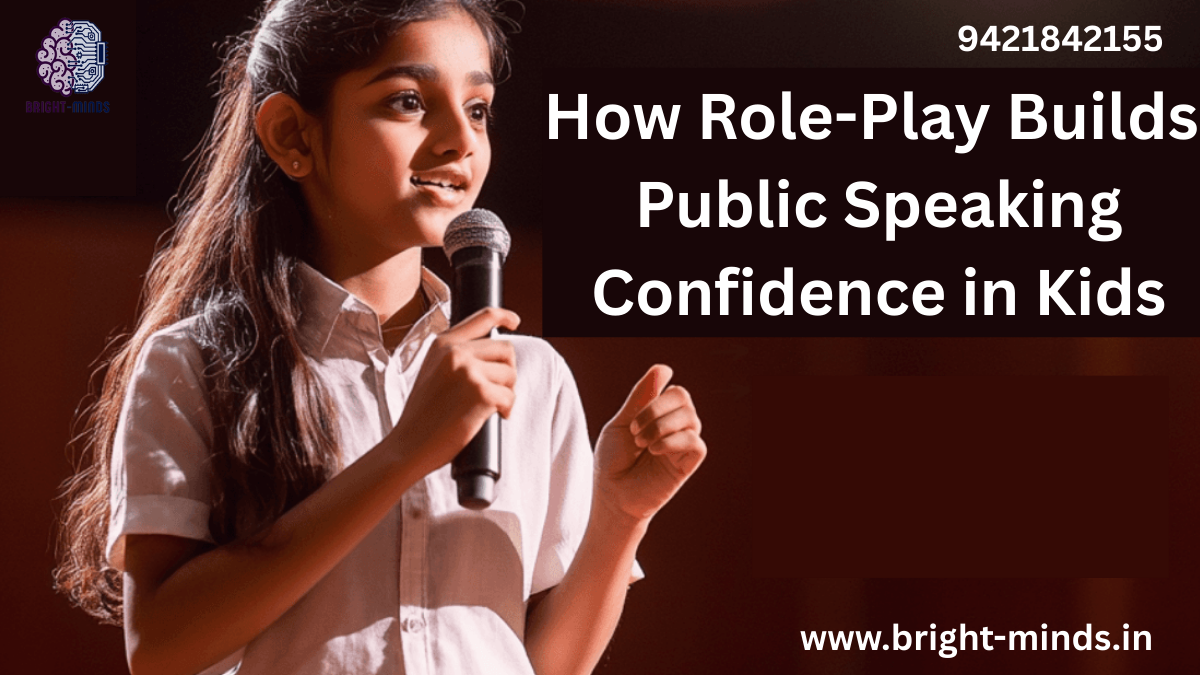In today’s fast-paced world, strong communication skills aren’t just a “nice-to-have”—they’re essential for success. While adults often struggle with stage fright or public speaking anxiety, these fears usually take root in childhood. So, what if we could help kids overcome them early?
Enter role-play—a playful, interactive method that does more than entertain. It builds the foundation for public speaking confidence, creative thinking, and emotional intelligence.
Whether you’re a parent, teacher, or part of a company invested in youth development, understanding how role-play nurtures confident young speakers can make a world of difference.
🎭 What Is Role-Play, and Why Is It Powerful?
Role-play involves kids taking on imaginary or real-life roles—like a news reporter, superhero, chef, teacher, or even a business leader. Through guided storytelling, character-based conversations, or mock scenarios, children get to express themselves, solve problems, and speak in front of others without pressure.
Here’s the secret sauce: kids don’t realize they’re practicing public speaking because they’re too busy having fun. That’s what makes role-play a low-pressure, high-impact learning tool.
🧠 The Psychology Behind It
Experts agree that confidence is a skill, not a trait. According to child psychologists, confidence builds through positive reinforcement, repetition, and exposure to manageable challenges.
Role-playing checks all the boxes:
- ✅ Repetition: Practicing similar scenarios builds muscle memory for speaking.
- ✅ Emotional Safety: Kids feel safe in imaginary roles, so they take more creative risks.
- ✅ Peer Interaction: They learn to speak, listen, and respond—key skills for future communication.
As confidence grows in these pretend scenarios, kids begin to carry it into real-world situations like classroom presentations, debates, or even family discussions.
📈 Market Trends: Communication Skills Are in High Demand
In the modern workforce, communication is consistently ranked among the top “soft skills” employers seek. According to the World Economic Forum’s Future of Jobs Report (2025), communication, leadership, and adaptability will be essential across nearly all industries.
So, what’s the connection?
The children we help become confident communicators today will become tomorrow’s leaders, innovators, and problem-solvers. That’s why companies, schools, and even edtech platforms are integrating communication-building tools like role-play into their early education programs.
🌍 Real-World Applications: Where It Pays Off
Role-play isn’t limited to classrooms or theatre clubs. Its benefits show up in surprising places:
- School Presentations: Kids who role-play at home or in clubs perform better in oral assessments and group discussions.
- Social Interactions: Confident kids make friends more easily and resolve conflicts more peacefully.
- Competitions & Public Forums: From storytelling contests to Model UNs, role-play gives them a head start.
- Future Careers: Whether pitching an idea or interviewing for a job, public speaking confidence is a lifelong asset.
💡 Practical Tips to Start Role-Play at Home or in Class
You don’t need elaborate costumes or props. Just creativity and a little time.
Here’s how to start:
- Create a Role-Play Corner: Set up a small area with dress-up items, props, or puppets.
- Use Everyday Scenarios: Pretend to be a shopkeeper, a doctor, or a news anchor. Ask them to explain their “role” to you.
- Introduce Topics: “Can you explain the weather forecast to us?” or “Pretend you’re pitching your favorite toy to a TV audience.”
- Record and Rewatch: Use your phone to film a pretend newscast or speech. Kids love watching themselves—and you can give gentle feedback.
- Join Them: Kids mimic adults. When you join in the play, they feel more motivated and supported.
👨👩👧👦 A Relatable Example: Meet Aarav
Aarav, a shy 7-year-old, struggled to speak up in class. His parents introduced a daily “family news hour” at home, where Aarav acted as the news anchor, reporting on fun events or what he learned in school.
Over a few months, his confidence soared. He began raising his hand in class and even performed in the school assembly. The transformation was so notable that his teacher reached out to compliment the family.
What changed? A simple role-play activity sparked a ripple effect of confidence.
🔄 Link to Financial Literacy and Long-Term Success
Strong public speaking skills don’t just help with academics or social life—they lay the groundwork for financial literacy and long-term success. Confident communicators:
- Ask better questions
- Negotiate smarter
- Understand and express complex ideas—like budgeting or investing
- Stand out in leadership or entrepreneurial roles
Helping kids build confidence now is an investment that pays off in every area of their lives—especially their financial and career future.
🎯 Your Next Step: Empower the Next Generation
Role-play is more than child’s play. It’s a powerful, cost-effective, and fun way to build real-world skills. Whether you’re a parent, educator, or a professional advocating for youth empowerment, the first step is simply to start.
You may also like this:-

